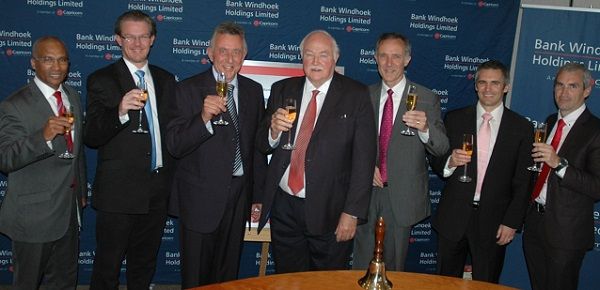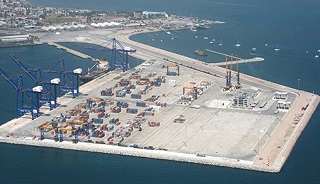
It never occurred to me that failure was an option – Brandt

In the five years since Bank Windhoek listed on the Namibian Stock Exchange, its residence on the bourse has become a catalyst for both institutions. The bank’s parent, Bank Windhoek Holdings have morphed into the Capricorn Investment Group, while the listing became the most successful primary listing to date.
In 2013, Capricorn Group had a total comprehensive income of N$515.6 million. In 2017 it has jumped to N$931 million, constituting a smoothed annual growth of 16% per year. Bank Windhoek shares which were offered at N$8.75 at the IPO, has exploded, increasing by 78% over five years. In 2017 the share traded for N$18.09.
“With the listing, we can say that the ownership of Bank Windhoek Holdings (now Capricorn Group) is now vested in the whole public” said former Windhoek mayor and Capricorn Group director, Mr Matheus Shikongo.
During the post-listing period, the group took full shareholding of Capricorn Asset Management, acquired shareholding in Bank Gaberone and in Cavmont Bank in Zambia, as well as some smaller local entities in financial services. This necessitated a new uniform group identity and a cohesive strategic focus, a process which started in 2014.
Rebranding and consolidation reached its ultimate goal on 22 September 2016 with the official renaming of Bank Windhoek Holdings Group to Capricorn Investment Group Ltd. Within a month, the group reached another milestone, publishing for the first time ever an integrated financial report.
Capricorn Group was now a regional financial services group with interests in banking, insurance, asset management, and investments with business interests throughout southern Africa.
On 18 April 2017, Capricorn Private Wealth was launched to consolidate the interests and banking needs of the group’s high networth clients.
With all banking bases covered, the group became an attractive investor target leading to the sale of 26% of the group’s shares to the Government Institutions Pension Fund (GIPF). As a shareholder of reference, the pension fund opened a new channel for the group to access additional financing for further expansion. In its pre-listing past, Bank Windhoek and by implication, Bank Windhoek Holdings suffered more than other local banks when liquidity was constrained, due to the absence of a large foreign parent.
At the time of the acquisition, the civil service pension fund’s Chief Executive, Mr David Nuyoma commented “The transaction is of great significance for the GIPF as it provides it with an opportunity to invest in high-quality Namibian assets at a good price and market-related returns on behalf of the beneficiaries of the GIPF.”
During last year, the group reached the point where it was able to allow its leader since 1982, Mr Koos Brandt, to retire as Chairman of the Board, both of Bank Windhoek and of the Capricorn Group. Since 01 July 2017, Mr Brandt only serves as the chairman of Capricorn Investment Holdings, the single biggest consolidated shareholder in the group with a 41% holding.












































